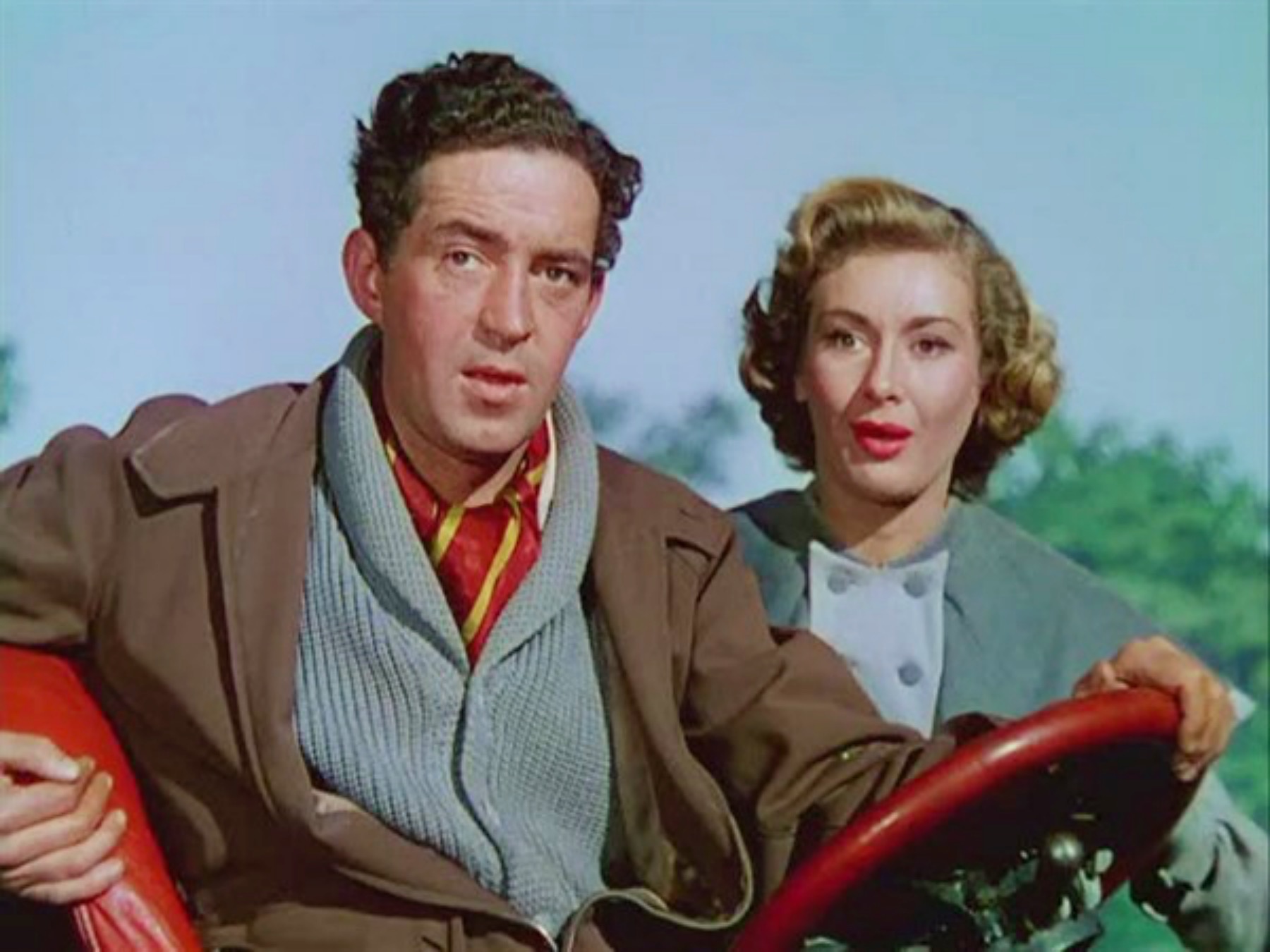
- Golden Globe Awards
1955: International Films Share the Spotlight

In the 1950s, there were a few years when multiple films were awarded the Golden Globe for Best Foreign Film (now Best Non-English Language Film), and 1955 was one of those years.
The 12th Golden Globes were held on February 24, 1955, at the Ambassador Hotel, and, befitting the organization’s international roots, four foreign films were voted the winners by the Hollywood Foreign Press Association.
The first was the British film Genevieve, a comedy about a car race. Two couples, Alan and Wendy (John Gregson and Dinah Sheridan), and Ambrose and his girlfriend Rosalind (Kenneth More and Kay Kendall), take part in a car rally from London to Brighton. What starts out as friendly rivalry turns into a bitter competition as the four decide to race back to London, cheating and sabotaging each other the whole way.
Directed by Henry Cornelius and written by William Rose (best known for his Ealing comedies), the movie takes its title from the winning car, a 1904 French Darracq. Made on a tiny budget and shot in two months, the film was written off by its distributor, Rank Studios, but turned into a surprise hit, and made stars of all four of its actors.
The second winner was the Argentine film La Mujer de las Camelias, based on the widely adapted romantic novel “La Dame aux Camélias,” by Alexandre Dumas fils. Directed by Ernesto Arancibia, the film stars Zully Moreno, Carlos Thompson, and Mona Maris, and tells the story of a beautiful and doomed courtesan, Margarita (Moreno), who falls in love with the young, bourgeois Armand (Thompson). Their ill-fated romance ends when she dies of consumption.
The German movie No Way Back was the third winner of the night, a postwar drama directed by Victor Vicas and starring Ivan Desny, Ruth Niehaus, and René Deltgen. After the Battle of Berlin in 1945, a Russian soldier rescues a German girl hiding in a cellar. He returns to East Berlin seven years later as a civil engineer, and discovers that she is now the police chief’s secretary. The two fall in love and try to escape to West Germany, but the Russian police foil their plans, and for the doomed lovers there is no way out.
The fourth Golden Globe winner was director Keisuke Kinoshita’s Twenty-Four Eyes, based on the eponymous 1952 novel by Sakae Tsuboi. The narrative spans 20 years in the life of an inspirational teacher played by Hideko Takamine. The title refers to the eyes of the teacher’s first 12 students in first grade. Beloved by her pupils but scorned by adults because of her modern clothes and habit of bike-riding, the teacher guides her students through their school years all the way to adulthood, in some cases seeing them off to war. She starts her own family, lives through the turmoil of World War II, and goes back to her vocation of teaching until the end of her life.